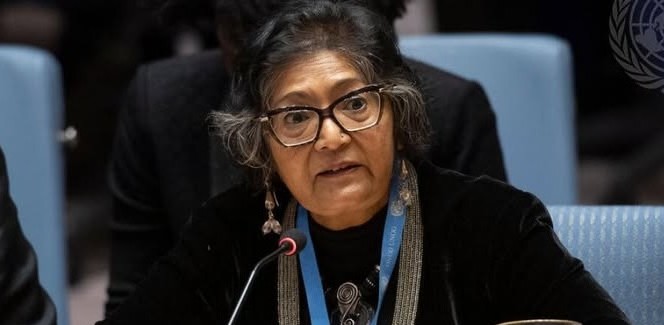
The UN Commission on Human Rights in South Sudan will release a report revealing how billions in stolen public funds have fueled conflict, worsened poverty, and deepened the humanitarian crisis.
Behind the scenes, billions of dollars meant to rebuild the nation were quietly siphoned away, lining the pockets of government officials while fueling the very conflict that shattered communities.
A new report by the United Nations Commission on Human Rights in South Sudan, titled “Plundering a Nation: How Rampant Corruption Unleashed a Human-Rights Crisis in South Sudan,” will expose the staggering scale of this theft.
After two years of meticulous investigation, the Commission has traced stolen and diverted funds from public coffers into schemes that worsened poverty, destroyed essential services, and even financed armed groups.
Yasmin Sooka, Chairperson of the Commission, and Barney Afako, a Commission member, will reveal the findings at a press conference in Nairobi on Tuesday.
According to the Commission, billions intended for healthcare, education, and social programs were rerouted through opaque contracts and shell companies, leaving millions without food, medicine, or safety.
“On behalf of the UN Commission on Human Rights in South Sudan, I am pleased to invite you to a press conference for the launch of the Commission’s new report, Plundering a Nation: How Rampant Corruption Unleashed a Human-Rights Crisis in South Sudan,” the Commission said in an invitation to media outlets.
The report paints a bleak picture of a nation where mismanaged wealth and unchecked greed have become catalysts for conflict.
Villages burned, families displaced, and young people recruited into armed groups, all fueled by the stolen billions.
Each misappropriated dollar, the Commission says, has deepened the country’s humanitarian crisis and prolonged its cycles of violence.
As the world watches, the Commission hopes its findings will spur immediate accountability.

